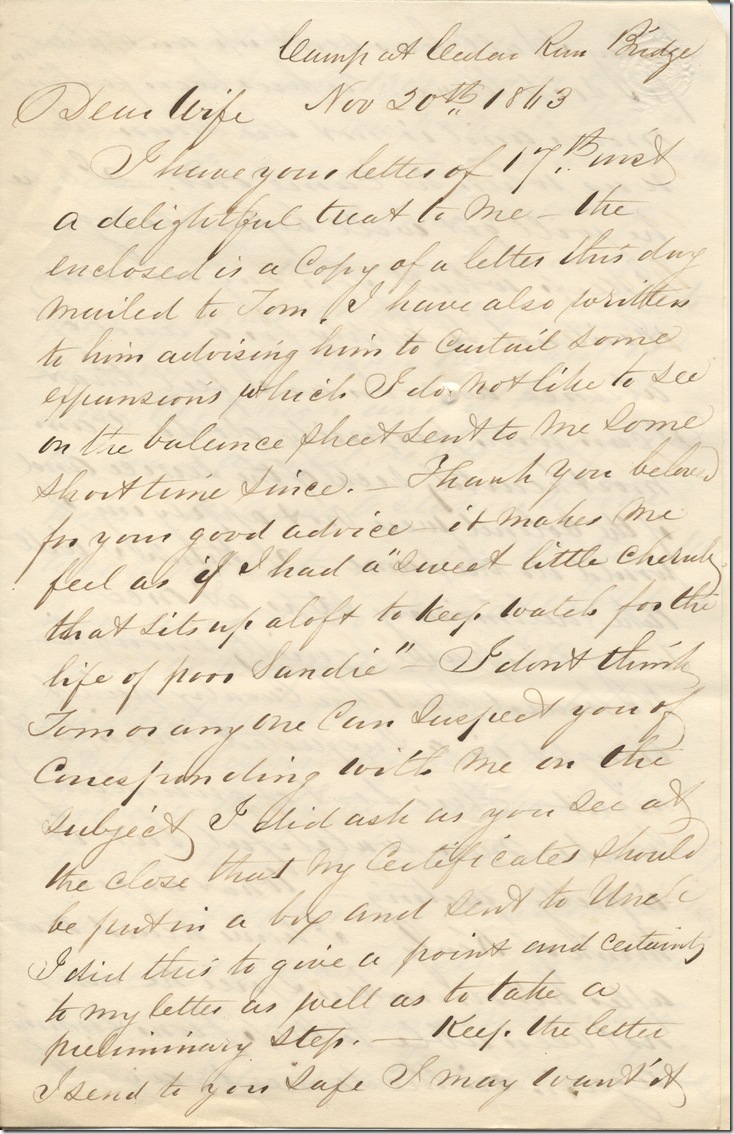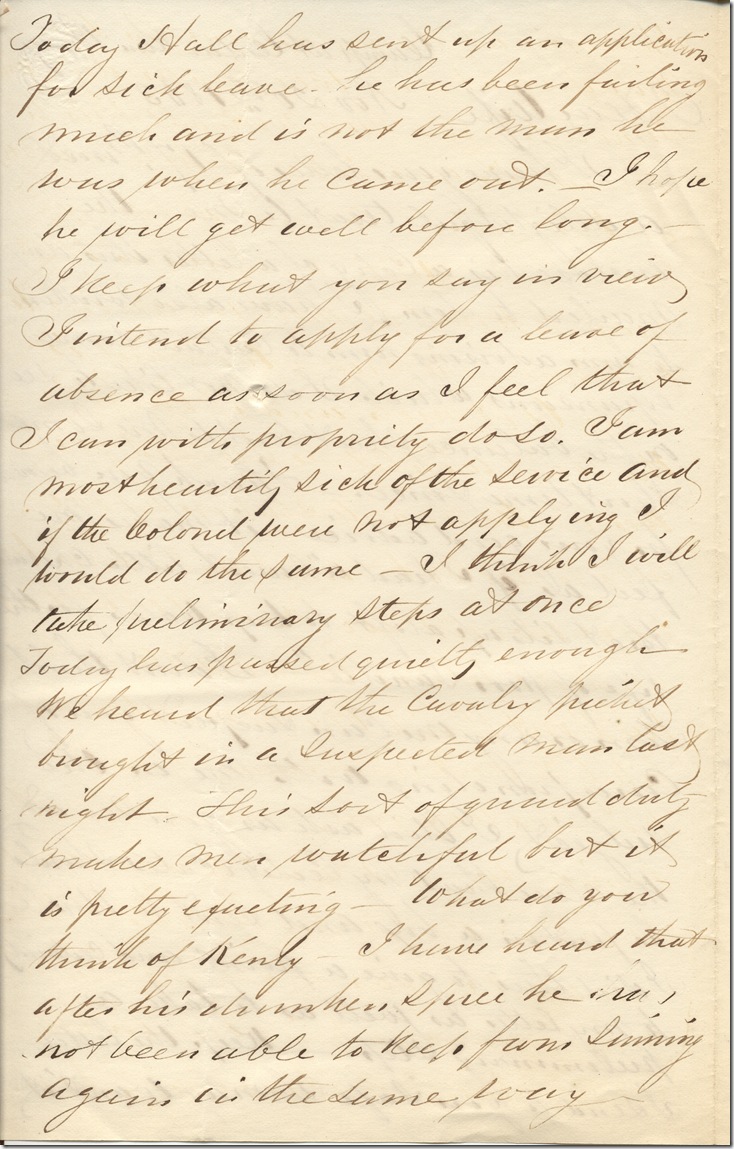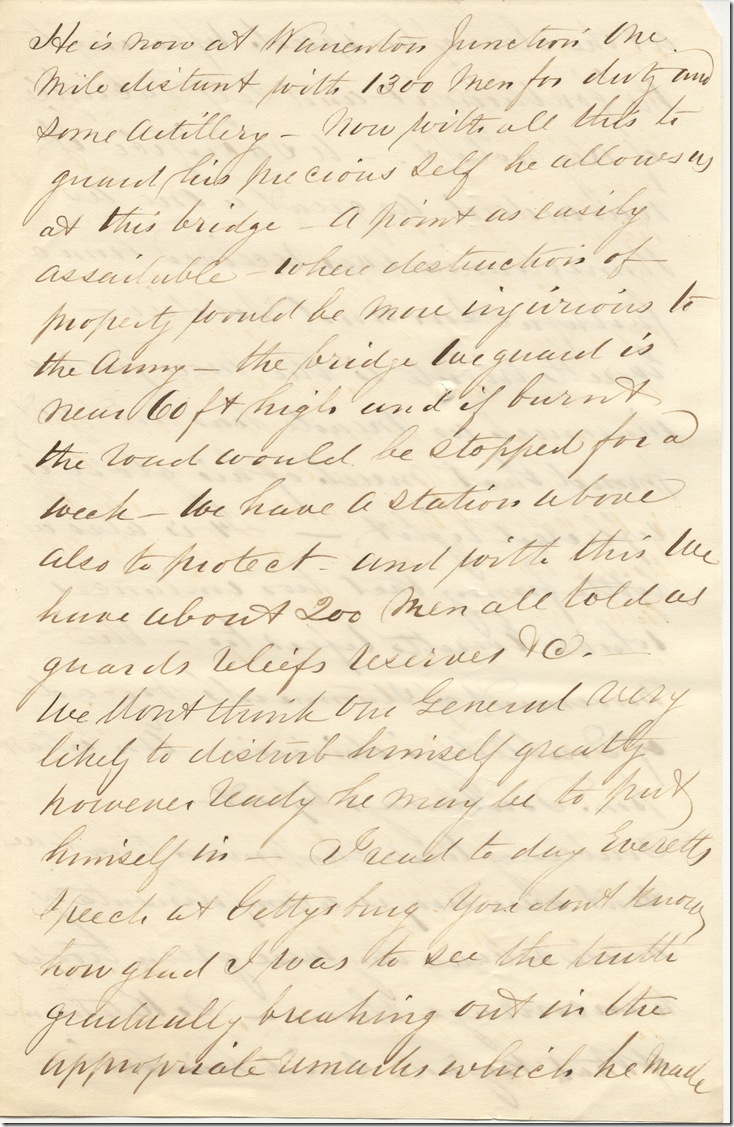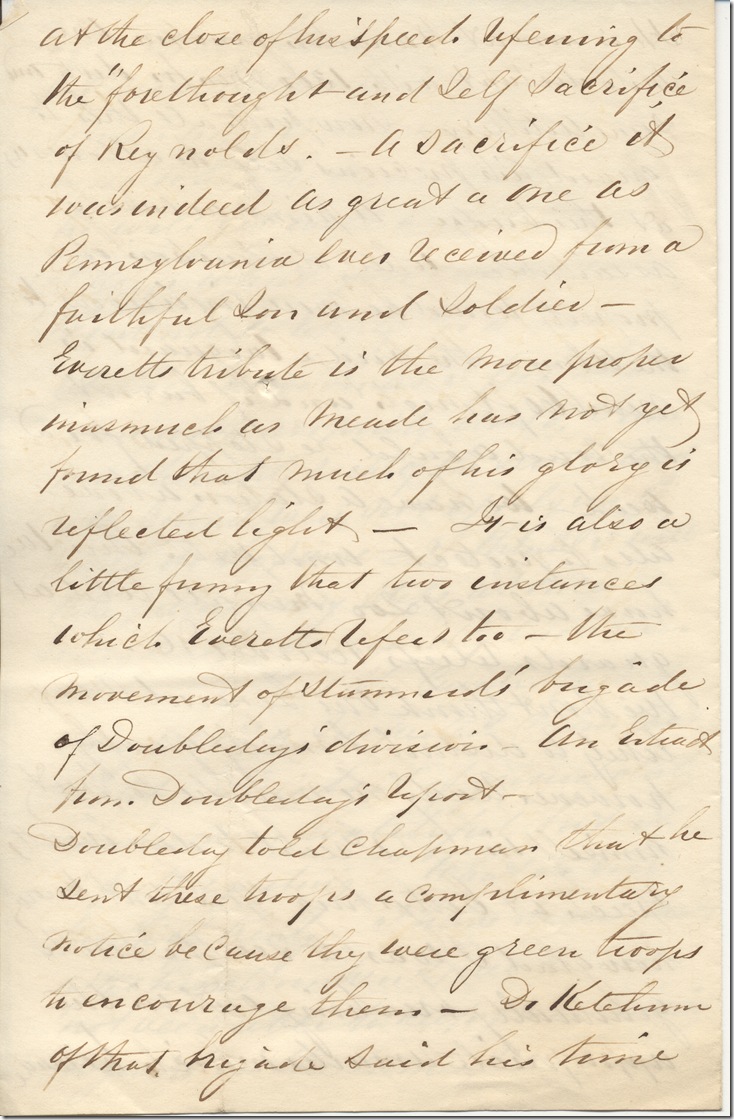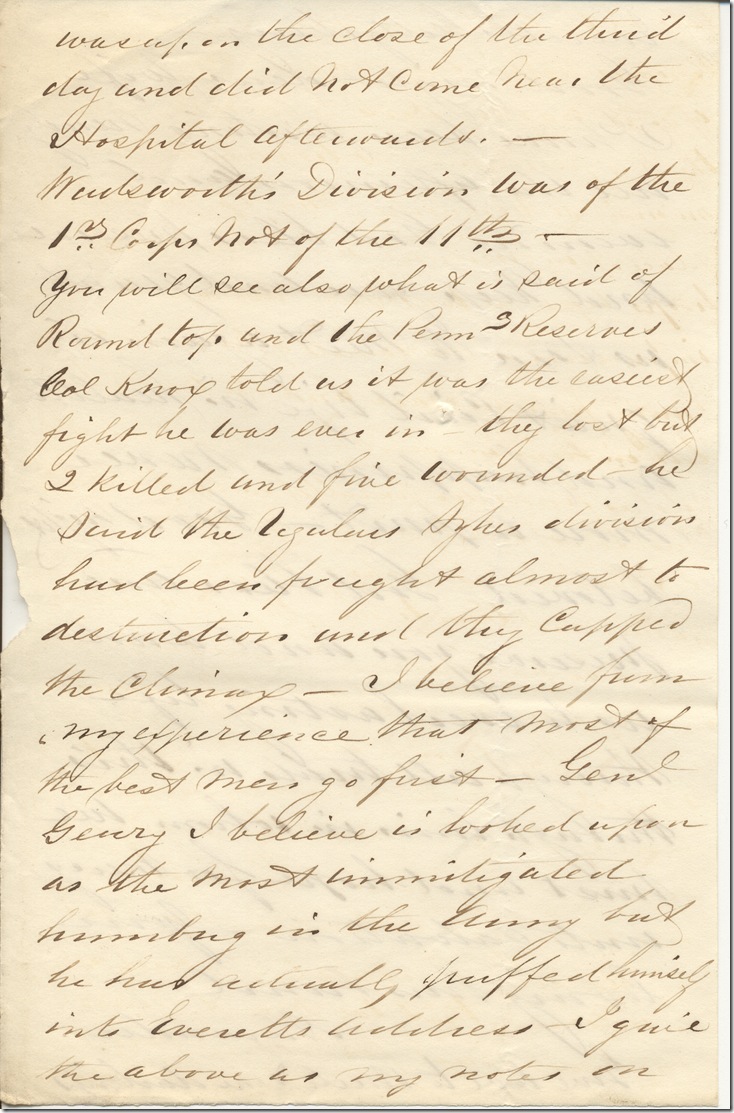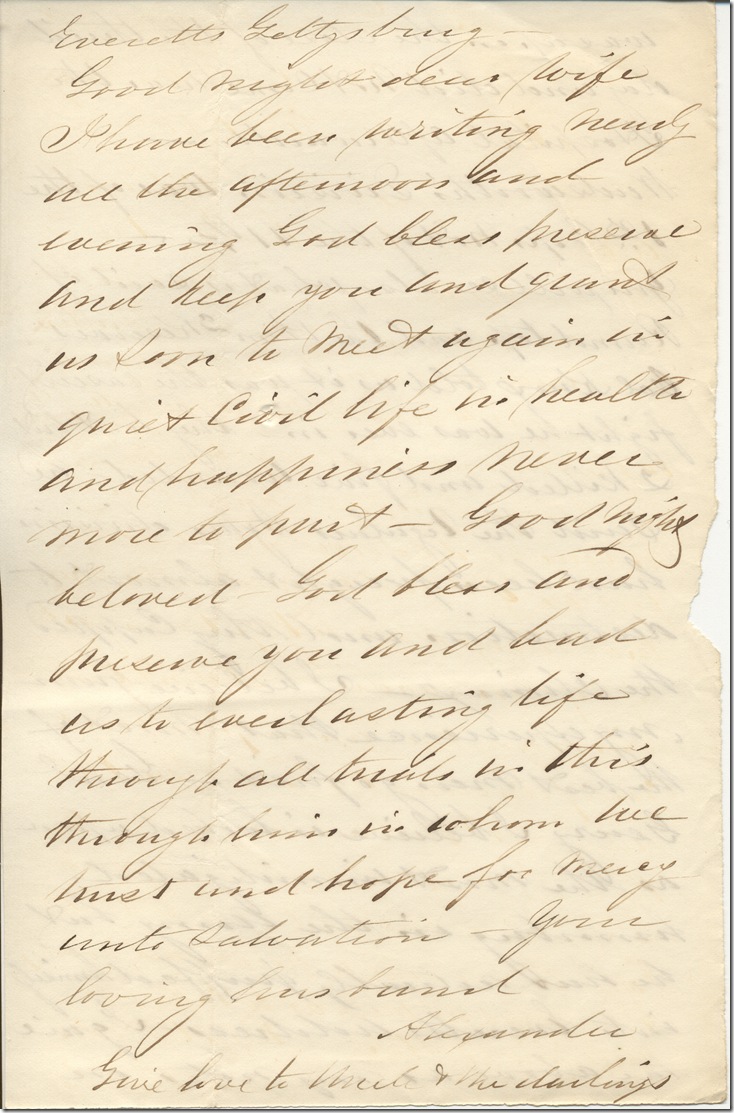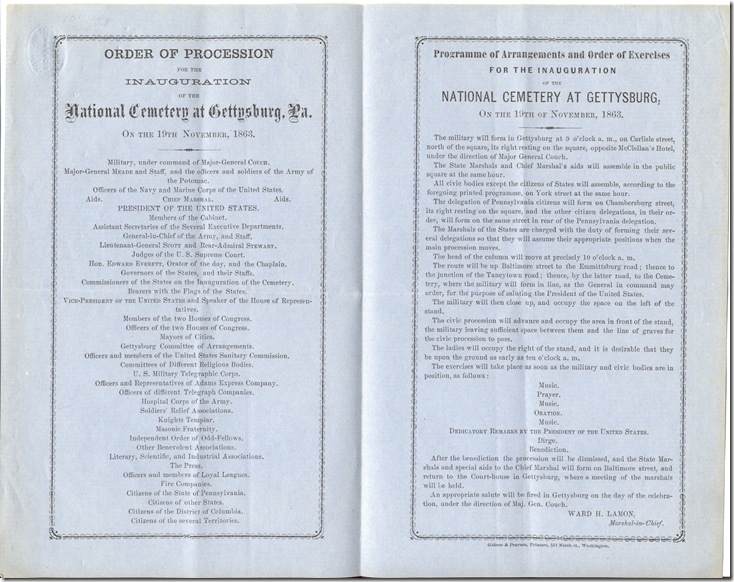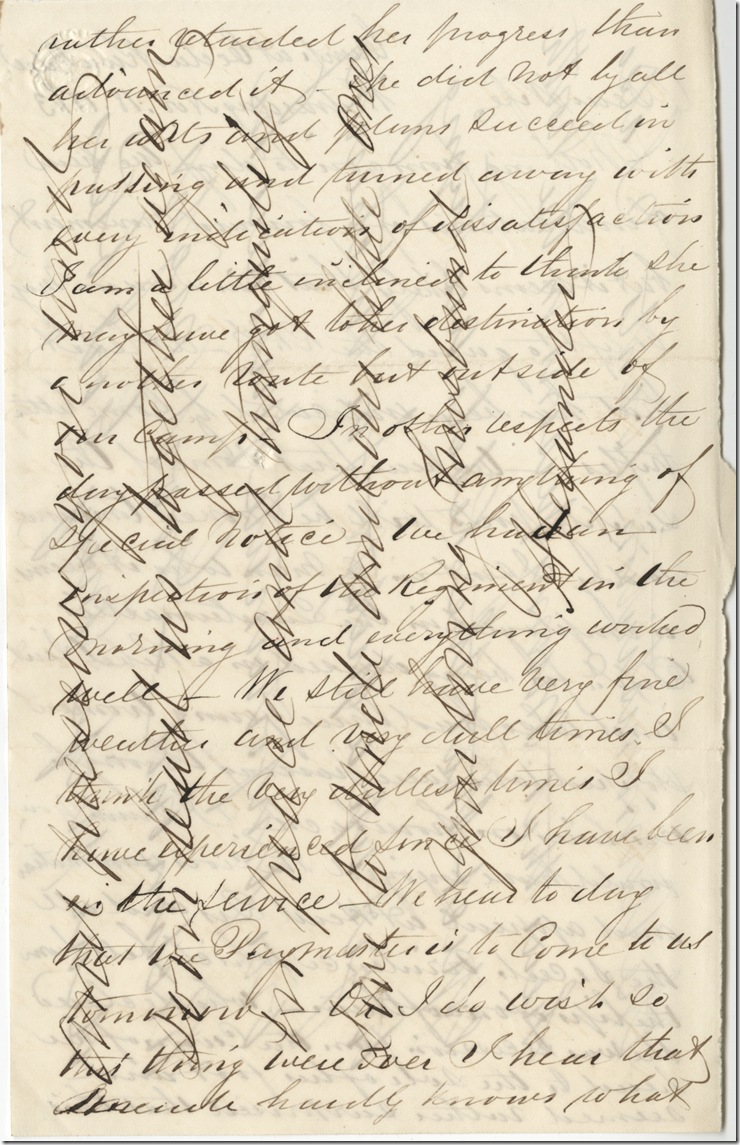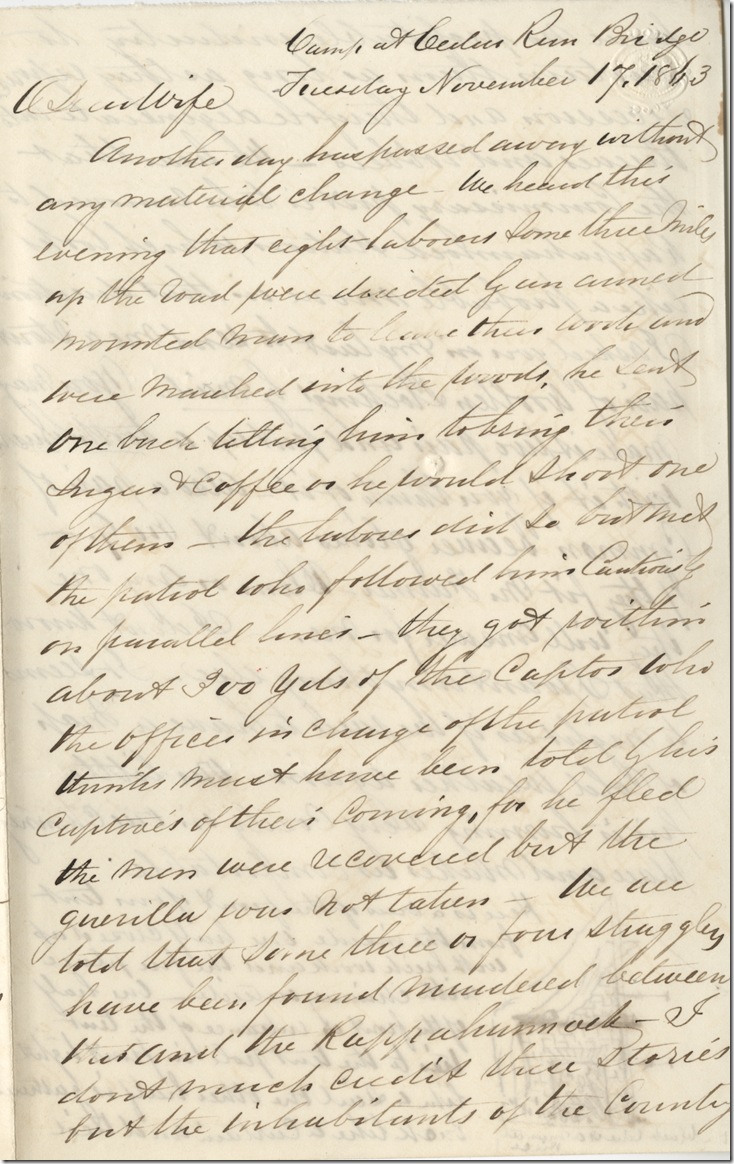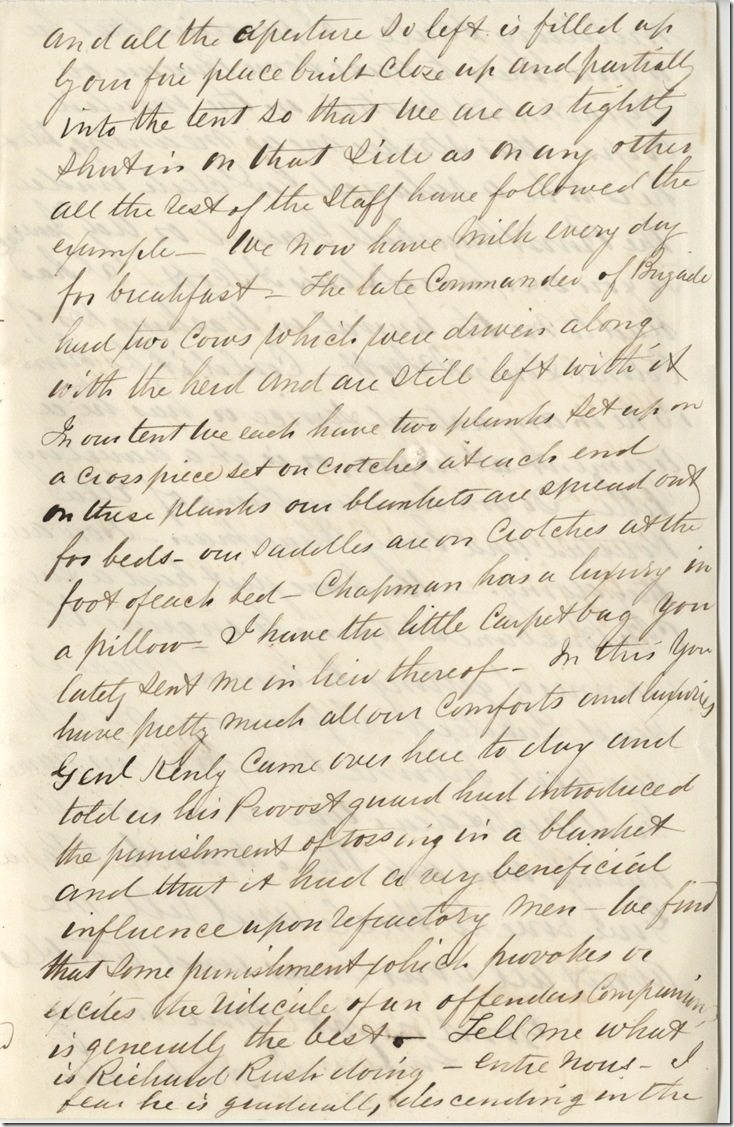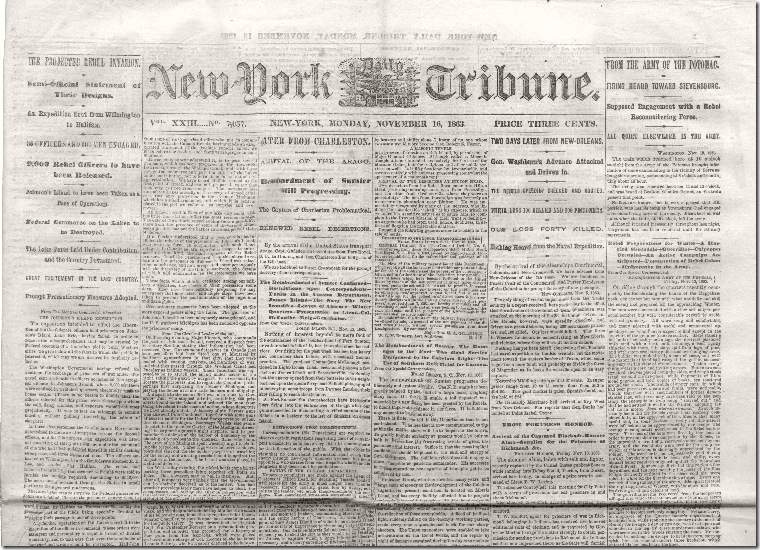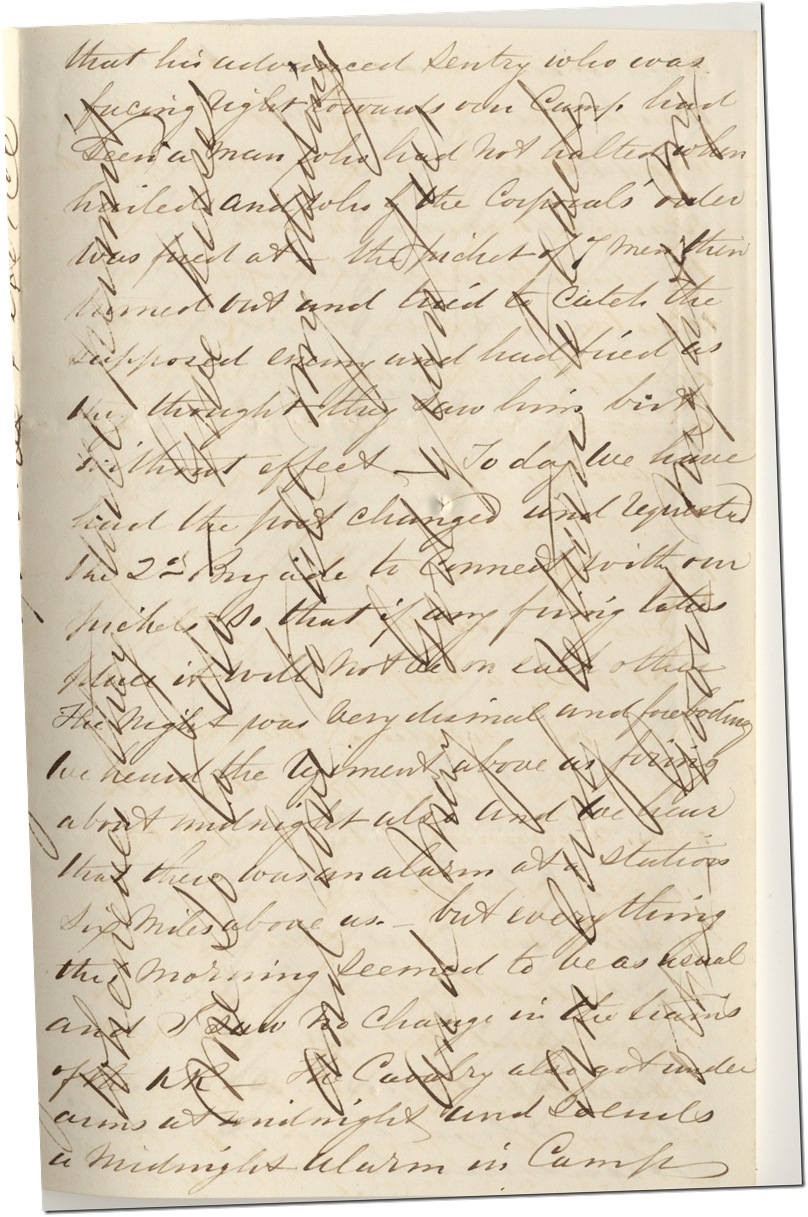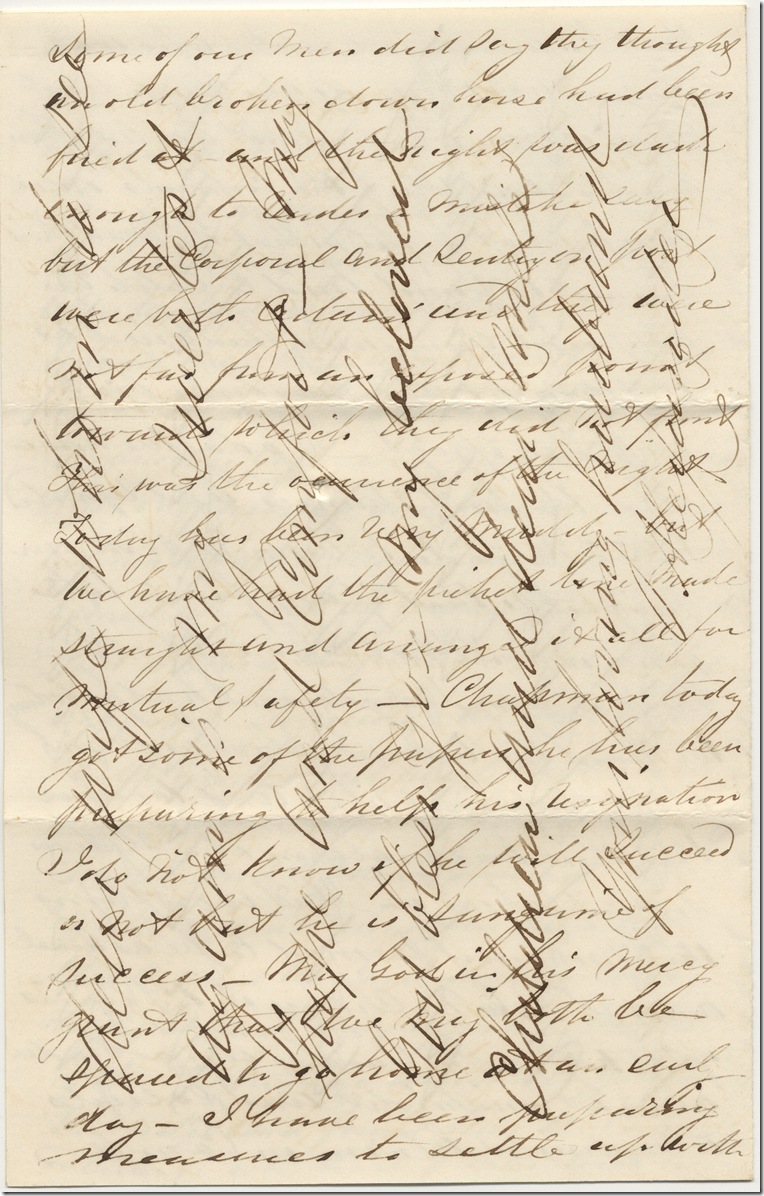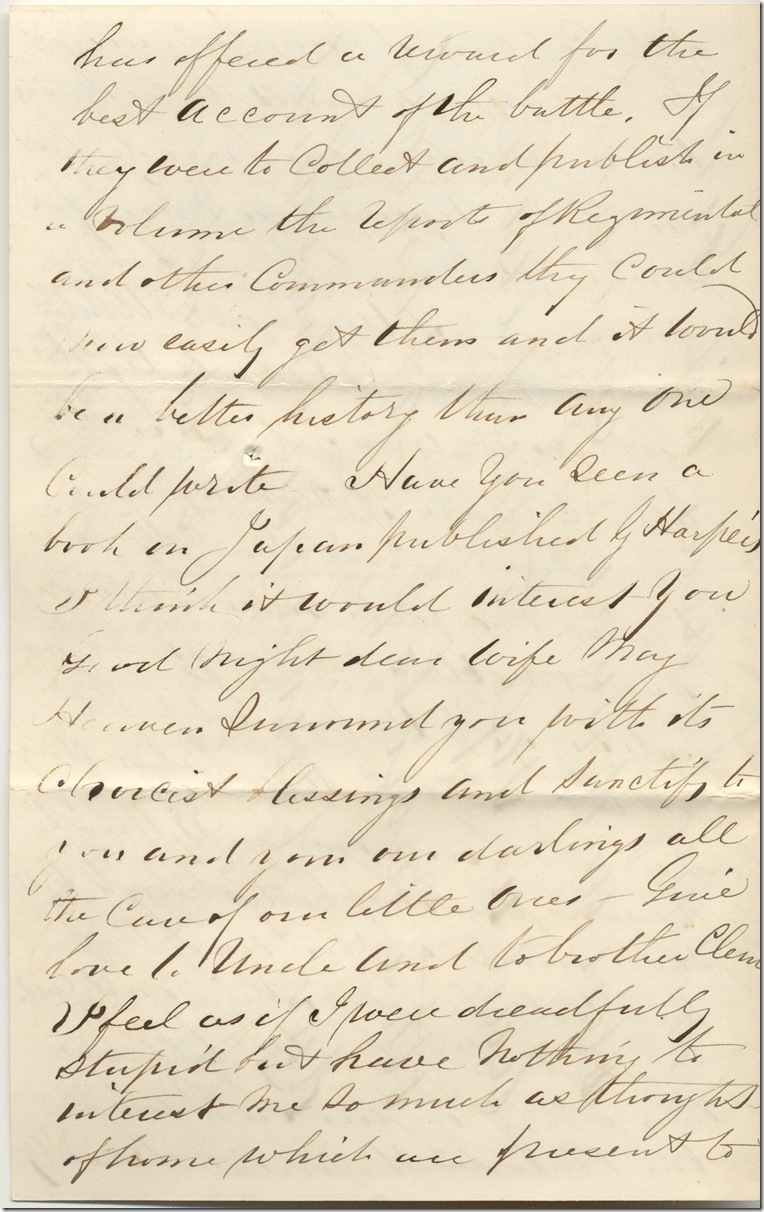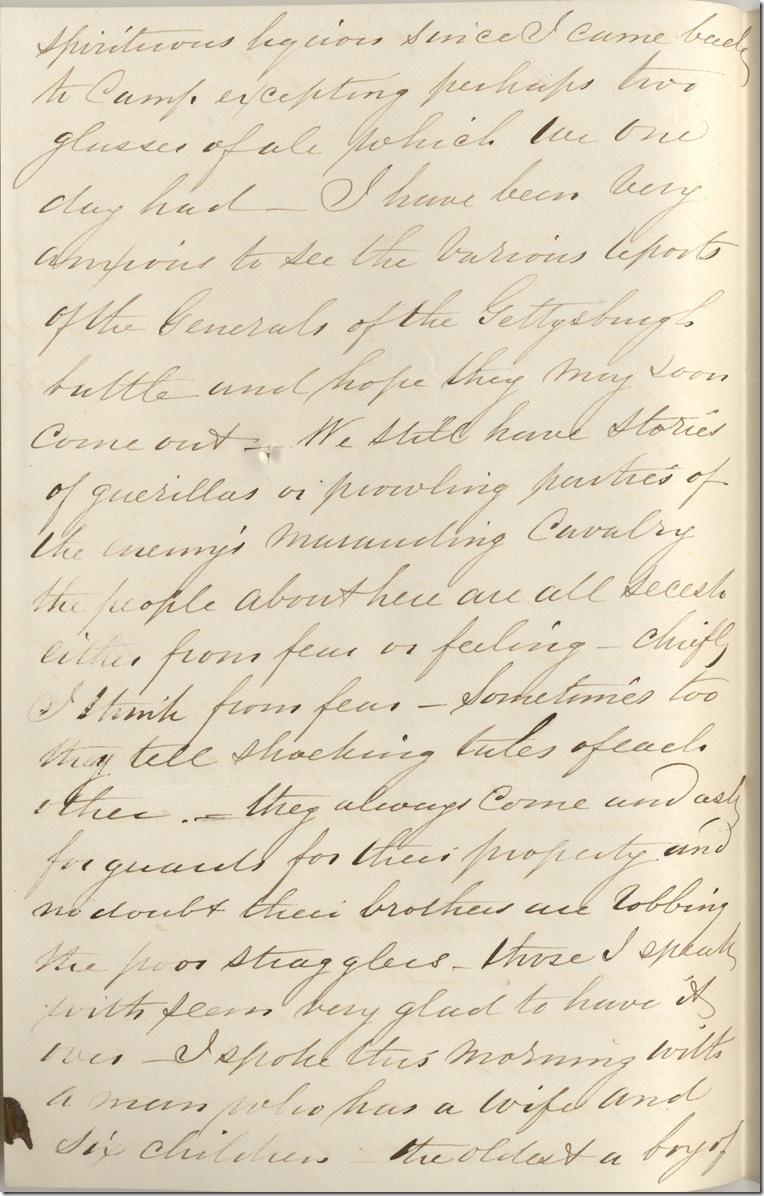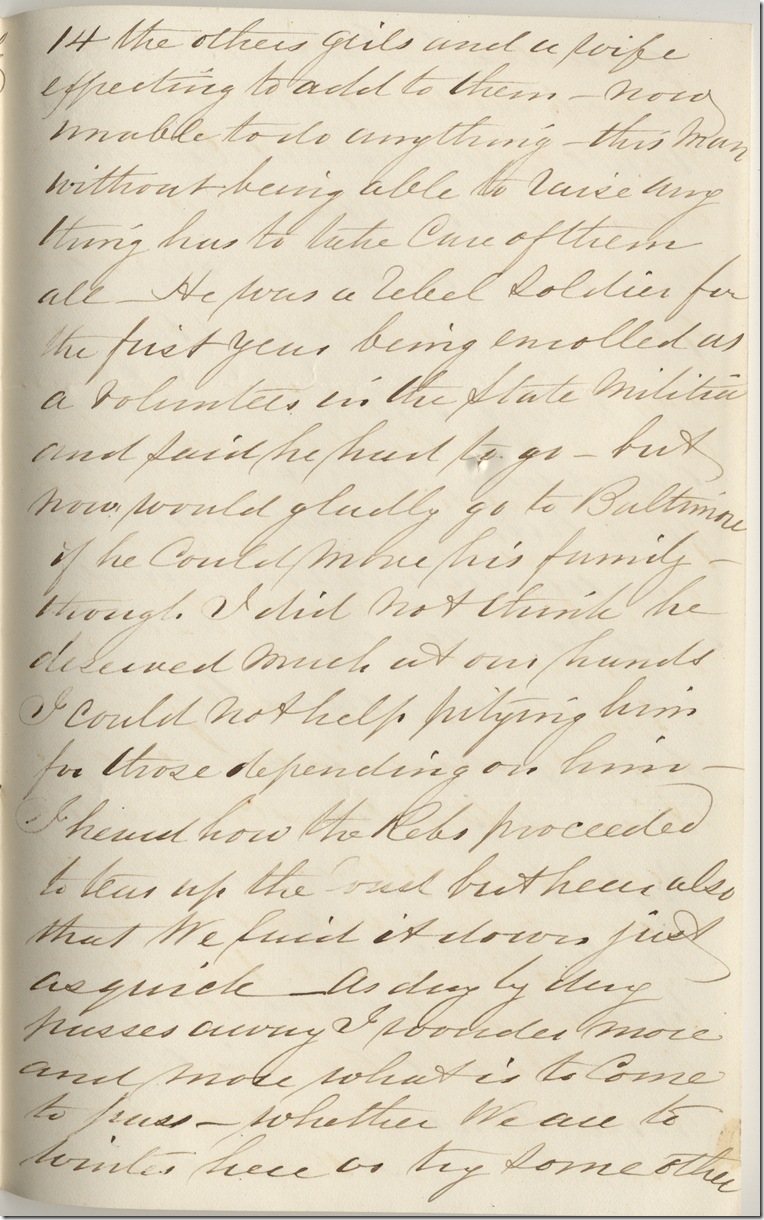Alexander Biddle was a member of the prominent Philadelphia Biddle family and was married to Julia Williams Rush, the granddaughter of Dr. Benjamin Rush. Biddle served with the 121st Pennsylvania Volunteer Infantry, beginning in September 1862. Starting out as a major, he would participate in Fredericksburg and Gettysburg, among other engagements, and would leave the service as a lieutenant colonel. (He was commissioned, but never mustered, as colonel)
Transcript:
Camp at Cedar Run Bridge
Dear Wife,
I have your letter of 17th a delightful treat to me. The enclosed is a copy of a letter this day mailed to Tom. I have also written to him advising him to curtail some expansions which I do not like to see on the balance sheet sent to me some short time since. Thank you beloved for your good advice, it makes me feel as if I had a “sweet little cherub that sits up aloft to keep watch for the life of poor Sandie.” I don’t think Tom or anyone can suspect you of corresponding with me on the subject. I did ask as you said at the close that my certificates should be put in a box and sent to Uncle. I did this to give a point and certainty to my letter as well as to take a preliminary step. Keep the letter I send to you safe, I may want it. Today Hall has sent up an application for sick leave, he has been failing much and is not the man he was when he came out. I hope he will get well before long. I keep what you say in view. I intend to apply for a leave of absence as soon as I feel that I can with propriety do so. I am most heartily sick of the service and if the colonel were not applying I would do the same. I think I will take preliminary steps at once. Today has passed quietly enough. We heard that the Cavalry regiment brought in an unexpected man last night. This sort of guard duty makes men watchful but it is pretty exacting. What do you think of Kenly. I have heard that after his drunken spree he has not been able to keep from sinning again in the same way. He is now at Warrenton Junction one mile distant with 1300 men for duty and some artillery. Now with all this to guard his precious self he allows us at this bridge. A point as easily assailable where destruction of property would be more injurious to the Army, the bridge we guard is nearly 60 ft high and if burnt the road would be stopped for a week. We have a station above also to protect and with this we have about 200 men all told as guard’s reliefs reserves &c. We don’t think one General very likely to disturb himself greatly however ready he may be to put himself in. I read today Everett’s speech at Gettysburg; you don’t know how glad I was to see the truth gradually breaking out in the appropriate remarks which he made at the close of his speech. Referring to the “forethought and self sacrifice of Reynolds, a sacrifice it was indeed as great a one as Pennsylvania ever received from a faithful son and soldier. Everett’s tribute is the more proper in as much as Meade has not yet found that much of his glory is reflected light. It is also a little funny that two instances which Everett refers too, the movement of Stammard’s brigade of Doubleday’s division. An extract from Doubleday’s report: Doubleday told Chapman that he sent these troops a complimentary notice because they were green troops to encourage them. [Dr. Ketchman?] of that brigade said his time was upon the close of the third day and did not come near the Hospital afterwards. Wadsworth’s Division was of the 1st Corps not of the 11th. You will see also what is said of Round top and the Penn Reserves. Knox told us it was the easiest fight he was ever in, they lost but 2 killed and five wounded. He said the Regulars of his division had been fought almost to destruction and they capped the climax. I believe from my experience that most of the best men go first. Gen Geary I believe is looked upon as the most unmitigated humbug in the Army, but he has actually puffed himself into Everett’s address. I give the above as my notes on Everett’s Gettysburg. Good night dear wife, I have been writing nearly all the afternoon and evening. God bless, preserve, and keep you and grant us soon to meet again in quiet civil life in health and happiness never more to part. Good night beloved. God bless and preserve you and guide us to everlasting life through all trials in this through him in whom we trust and hope for mercy unto salvation.
Your loving husband, Alexander
Give love to Uncle and the darlings
Citation: Alexander Biddle (1819-1899), autograph letter signed to Julia Williams Rush Biddle,20 November 1863. Rush IV:30:37
